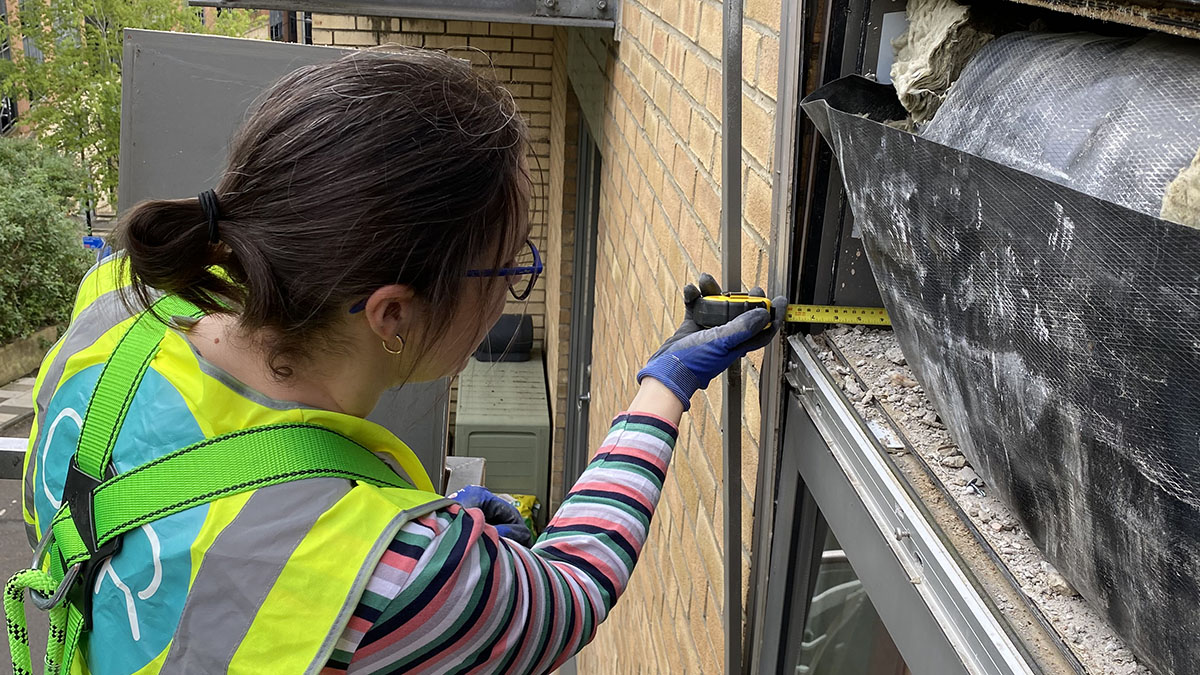Fire engineering in action
Meet Kate, and learn more about the exciting world of fire engineering.

Name: Kate Swinburne
Job: Fire Engineer
Company: OFR Consultants
Why did you choose to become an engineer?
I was always interested in how our built environment was created and how on earth it was so resilient. “Why does this bridge not collapse under the weight of all these cars” or “why does that building not blow over in a storm”. I even used to duck going under bridges just in case they fell down on my way through!
Despite that, I was absolutely convinced I didn’t want to be an engineer. That was purely because I thought engineering was only car mechanics and brickies which were not careers that I was interested in pursuing.
However, when I learned that engineering would be the way I’d answer all those “why’s” then I knew it would be the right choice for me.
What do you love about your job?
That every day is completely different. One day I can be on site in Aberdeen, London or Manchester and the next I’ll be reviewing a very detailed drawing of a façade. One week I’ll be at a meeting with 10 other types of designer or negotiating approvals with Building Control, and the week after I’ll be attending training events or interviewing for the next generation of fire engineers.
The variety of projects I get involved with is never ending – blocks of flats, houses, offices, manufacturing facilities, prisons, schools, hotels – even castles! I love the variety of new challenges that come with each project, design team and client.
How did you get started as an engineer?
I did a Masters degree in Civil Engineering at The University of Edinburgh and then worked as a structural and geotechnical engineer for about a year.
I knew when I left university that I was interested in fire engineering as a career following some courses I’d done so decided to go back to university to do a PhD in fire engineering. After that I started my career as a fire engineer.
In my time as a fire engineer, I have worked alongside people from so many backgrounds: from those undertaking apprenticeships to those who have been university lecturers; from surveyors and mechanical engineers to joiners and architects. Fire engineering is a truly diverse field which is part of the joy of working in the industry.
How does your work make a difference to peoples’ lives?
The primary purpose of my job is to ensure that people are safe in the event of a fire and a key part of this is to ensure that fire safety is so well integrated into a buildings design that people instinctively know what to do in a fire. This is essential irrespective of whether they are in their own home, a skyscraper or an ancient monument.
What was the last exciting project you worked on?
One of my favourite projects at the moment is the refurbishment of an iconic, historic department store and hotel right in the centre of my hometown of Edinburgh. It’s an incredible building with a striking atrium, and magnificent interior and exterior. It’s an absolute privilege to be part of the team supporting the refurbishment and I love talking to my friends and family about my input into the project.
The two most memorable projects from my career to date have been the Glasgow 2014 Commonwealth Games and the NHS Louisa Jordan COVID hospital in Glasgow.
What advice would you give a young person who was considering engineering as a future career?
Speak to as many people as you can, and do your own research, to understand the vast opportunities that exist in the world of engineering. Whether you want to do detailed design, travel the world, work with other engineers, contribute to groundbreaking innovation or see your designs come to life – engineering will absolutely have a place for you whatever your background or life experience.
What skills and personal qualities are important for being an engineer?
There are so many skills that different people bring to engineering, making the career accessible to so many people. Some examples of important skills could include technical excellence to develop new and innovative products, being inquisitive and challenging the status quo, negotiating skills to gain approvals for buildings, people skills to maintain client relationships or manage teams, computer skills such as coding, resilience to learn from your mistakes and an enthusiasm for learning and development.
